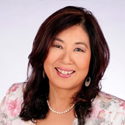
Beyond Integrative Medicine?
by Dr Margaret Jinn Ngu
How do you define Integrative Medicine?
Integrative Medicine is currently defined as that of integrating evidence based complementary medicine with mainstream medicine. IM doctors are interested in modalities that treat the patient with as little toxicity as possible. These modalities included acupuncture, herbal medicine, nutritional medicine, bio-energetic medicine and mind body medicine.
My personal take and drive is that we need to remove the focus on the integration of modalities to focus instead on the transformation through the integration of the individual person- physically, emotionally, mentally, socially, environmentally and spiritually.
A doctor practicing herbal medicine as well as acupuncture as well as mainstream medicine is not necessarily an IM practitioner as we are still talking about modalities of practice. Whilst working on a holistic model, the practitioner can indeed be just using these non mainstream modalities as panaceas, the same way as allopathic medicine does to alleviate the symptom.
The more advanced definition of an IM practitioner is that of one that sees illness as a call for growth and change and who acts as a facilitator of transformation using appropriate processes and medicines for the individual.
How did you get involved in IM? What motivated you to found AIMA and TMA?
IM was conceived in the early 90’s by a mix of doctors practising various complementary modalities. By then I had been practicing acupuncture, bioenergetic medicine, nutritional medicine and mind body medicine for 7 yrs. We identified the need to come together to form a platform united in numbers (as individual doctors were being picked on) so that each could practice his/her favourite modality more safely in the midst of criticism from the mainstream of doctors. The group of us founded the AIMA (Australian Integrative Medicine Association) in 1992 and I became the 2nd President inaugurating the first 3 Integrative Medicine Conferences in 1998 during my watch. We moved on to become a craft group in the AMA and a Specific Interest group in IM was later formed in the RACGP. Together, becoming the leading educators for Integrative Medicine.
After convening the 3rd Australasian IM conference in 2001, I retired from medico-political service to pursue further the meaning and depth of IM. Whilst I still saw the importance of a medical organization standing to bring together various evidence based modalities to complement mainstream medicine of drugs, radiation and surgery, I felt the need to explore the individual’s significance and meaning of his/her illness. I witnessed the quintessential processes of a profound healing in many patients in the face death. I discovered that almost all illness had a base in fear and untruths about themselves or false beliefs about their environment. I learned to facilitate the pathways for individuals to explore their pain and anxieties. I was blown away as I witnessed patients unfolding their life’s myth authentically. I saw patterns emerging that tied body symptoms and “targeted” body parts to emotions and specific belief systems that were often ultimately self negating; Whilst still utilizing complementary therapies for the physical body, I always found if they “dropped into” their physical sensations and emotion deeply enough they would experience quintessential qualities. These could not be described accurately with words. They were an embodied experience best described as an energy, peace, connection, gratitude, love, calm and an inner knowing.
Did this mean that doing this transformation will mean a cure? I found “yes” for some and “No” for those others who had other plans on higher realms for themselves.
At this stage of my vocation I can safely say that medical practitioners need to be Practitioners of Transformational. As such they respect and hold the process of illness as sacred alchemy with the patient being the Hero of their own Journey and the as midwife assisting in the patient’s metamorphosis to further embody greater awareness.
My patients’ experiences taught me that death when it is timely is the ultimate celebration of life; and the importance of staying conscious when passing over. More over it is not our authority to say when patients die. And yet our responsibility as Transformational Medicine practitioners is to support life at all times with appropriate modalities of Integrative Medicine. Those who have undergone transformation and lived, seem to go on to live an everyday fearless, present and fulfilling life.
What is a sifu?
This is a name in China meaning 'Master' connoting the archetype of a wise old man highly venerated for his wisdom, knowledge and experience. A doctor in the old days in China were considered by many to be a sage. The story is that the doctor in those days was paid only when his patients were healthy. At the same time patients allowed themselves to be guided physically, mentally and spiritually by their physician. The patient was seen in the context of his whole family, his environment and his beliefs, and everyone got involved.
Do you think what IM is has changed or is currently changing?
Many patients are quite loyal to and dependent on their doctor’s outlook. As more and more practitioners begin to embrace their own journeys, I believe the natural process of investigating more deeply when the status quo does not heal will stretch the practitioner into more holistic transformational pathways.
What do you consider to be the biggest obstacles for IM moving forward?
1. Industry focus on a Sickness model as a business.
2. Lack of PBS or medicare funding for patients wanting to receive IM approaches
3. IM doctors being picked on by Medicare for spending time with patients
Dr Margaret Jiin Ngu is a medical doctor and a Wellness Alchemist who has a passion to transform illness to wellness and pain into pleasure. Apart from her Transformational and Integrative Medicine practice, she facilitates the Transformational Journey and Inner Wisdom Retreats. www.transformationalmedicine.com